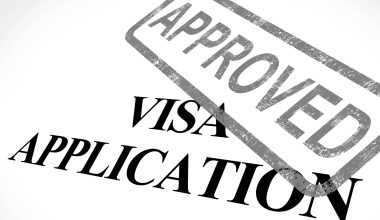First let’s understand the different types of Visas that one can apply for, and who can apply for!
Different types of Visa for Germany
Employment Visa
People who have already found work in Germany and have a job offer can apply for an Employment Visa. This is called a Job seeker visa (JSV) and has been covered in a related article here
Freelance Visa
If you’re a freelancer and you intend to start your own business in Germany, go for a freelance visa. It’s valid for 3 months. An extension is given after you’ve demonstrated success in the business and you’re earning enough money to sustain yourself and your dependents.
German Language Course Visa
Secure a Visa for up to 12 months. Take up an intensive German Language course. Your Visa will be valid for the entire duration of the programme. If you are searching for an online school, then Babbel is recommended. If you are looking for effective tips on how to learn the language then you can read this related article
Student Visa
Students who have been accepted into a German University or are expecting a response/acceptance letter can apply for a student visa.
(Family) Reunification Visa (FRV)
Reunification Visa is hard to get. People who have family in Germany can apply for this Visa if they fulfil the eligibility criteria. The family member must be a German resident. The person seeking a reunification visa must demonstrate that a family member living in Germany can financially support them for the duration of their stay. The authorities will consider several factors before granting this Visa. We have covered this, in detail, in another article, which you can read here.
Who will be considered for the reunification visa:
- Spouse of a German Resident
- A child of a German Resident (who is still under the supervision of a parental guardian)
- Parent of a German Resident who requires their child to care for them or vice versa
Visiting Scholar Visa
Scientists or Researchers who have collaborated with a German Institution where a study will be conducted can be granted this Visa. The authorities may consider the terms of what one is researching and the institution one is working with etc. For more details, please contact the German Embassy.
Medical Visa
People seeking medical treatment must apply for a medical treatment Visa. There are several forms that one will need to fill which the German Embassy will provide.
Blue Card
This category is available, especially for skilled immigrants and you can read about it in detail here
German visa application procedure
Unless your nation is exempt from visa rules, you must obtain a visa before travelling to Germany.
Where can I apply for a German visa?
German Mission for both long-term and short-term visas. A list of German Missions can be found on the website of the Federal Foreign Office.
Documents required for German Visa application
Like any Visa application, there are several documents required for the German Visa. You’ll need two sets of original documents. Below is a list of documents one must keep handy when applying for a German Visa.
- The passport must be valid.
- Completed and signed visa application form
- Passport photos (at least two) taken during the last three months
- Valid travel medical insurance with a minimum of 30.000 euros coverage.
- Proof of stay, for the duration of your stay in the Schengen area.
- Bank Statements to show that there are enough funds to finance yourself in Germany
- Travel Itinerary
Additional documents for short-stay visas
- Travel Itinerary (for short-stay visas). Flight bookings to and from Germany.
- Bank Statements to show that you can support yourself financially or a declaration from the individual covering your expenses.
Additional documents for long-stay visas
- Trip objectives (Job contracts, acceptance letter from the university or academic credentials)
- Federal Employment Administration approval (if applicable).
- Evidence of financial independence
Open a blocked bank account (For people applying for a long-term visa)
A type of account in which the user must deposit a predetermined sum of money which can be withdrawn in monthly increments. This is to demonstrate that you can financially support yourself for the duration of your stay. This has been explained in detail here.
Schedule a visa application appointment
Schedule an appointment with your local German Mission to submit your application with all the necessary papers.
German Visa Fee
The fee would differ on the kind of Visa that you’re applying for. Typically a short-stay visa costs around 80 Euros and a long-term visa will be around 75 Euros.
Germany Visa Processing
German Embassies around the world usually process a Visa Application within 10-15 working days. Delays may occur in certain situations based on the number of applications received.
What happens in case my application is rejected?
You will be notified by the German Embassy if your Visa application was rejected. They will inform you on what grounds your visa application was rejected. You can however appeal the decision within 30 days by writing to the German Embassy. If your application is rejected even after an appeal then you’ll have to appeal the decision by filing an action within 30 days at the Administrative Court in Berlin.
We hope that this article helped you a bit in understanding the various visa types, that are available in Germany and the procedure for applying for them.
Our community links:









1 comment